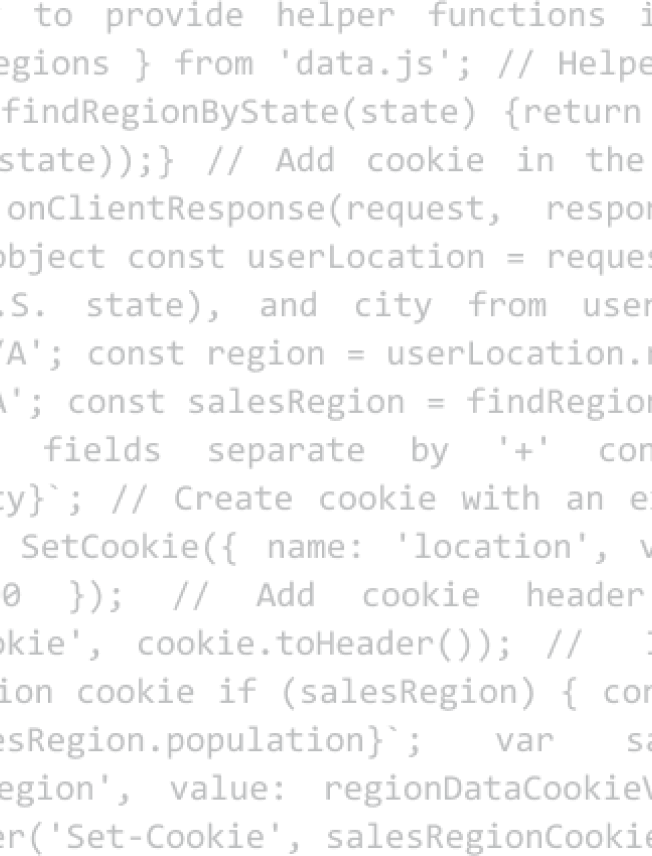
Deliver Faster Websites with Akamai EdgeWorkers
Run code on the most distributed edge compute platform in the world to cut down latency, speed up response times, improve performance, and deliver a better user experience.
Powered byEdgeWorkers
Benefits
Create functions at the edge on the largest distributed serverless network.
Deploy faster and more efficient applications
Write and execute custom code at the edge, reducing latency and improving response times.
Enhance user experience with dynamic content
Personalize content delivery and manage traffic efficiently right at the edge.
Ensure high availability and security
Leverage Akamai’s robust platform to scale your applications seamlessly and securely.
EdgeKV
Benefits
Supercharge your EdgeWorkers apps with a serverless key-value store.
Bring data close to users
Store and access data at the edge to enhance application performance and reduce latency.
Access data instantly
Achieve low-latency data reads and writes with a distributed key-value store.
Simplify data management
Use a straightforward key-value store without the complexity of traditional databases.
Feature Benefits
Command-line interface
Simplify daily operations by managing EdgeKV database tasks directly from a customizable CLI.
Proximity advantage
Utilize the world’s most expansive edge platform to bring your compute processes closer to your users for unmatched performance.
Localized data access
Gain instant access to data at the edge with Akamai EdgeKV, reducing latency and improving speed.
Seamless scaling
Effortlessly scale your applications to handle growing traffic and high-demand periods without manual intervention.
Rapid cold starts
Deploy code on demand with near-instant cold start times, powered by advanced V8 isolates.
Unified platform flexibility
Integrate a single serverless compute solution across diverse cloud environments for streamlined operations.
Versatile data storage
Store your data efficiently in either string or JSON formats, tailored to your application needs.
Secure data access
Implement robust role-based access controls to secure your EdgeKV databases effectively.
Featured Code Examples

Product URL Redirects
Note the URL path changing from /sku/483D5F/reviews to products/straight-fit-denim-jeans/reviews
This example uses EdgeWorkers + EdgeKV to extract a query string product SKU from an incoming URL, match it against a SKU stored in a KV database, and properly redirect the browser to the new product page.

Content Security Policy
A Content Security Policy (CSP) is a security feature implemented in web browsers to protect websites and web applications from attacks such as cross-site scripting (XSS) and data injection. CSP controls and limits the source of various types of content loaded and executed on a web page, including scripts, stylesheets, and images. EdgeWorkers provides numerous performance benefits for CSPs, which need to complement the security measures on the application server-side.

